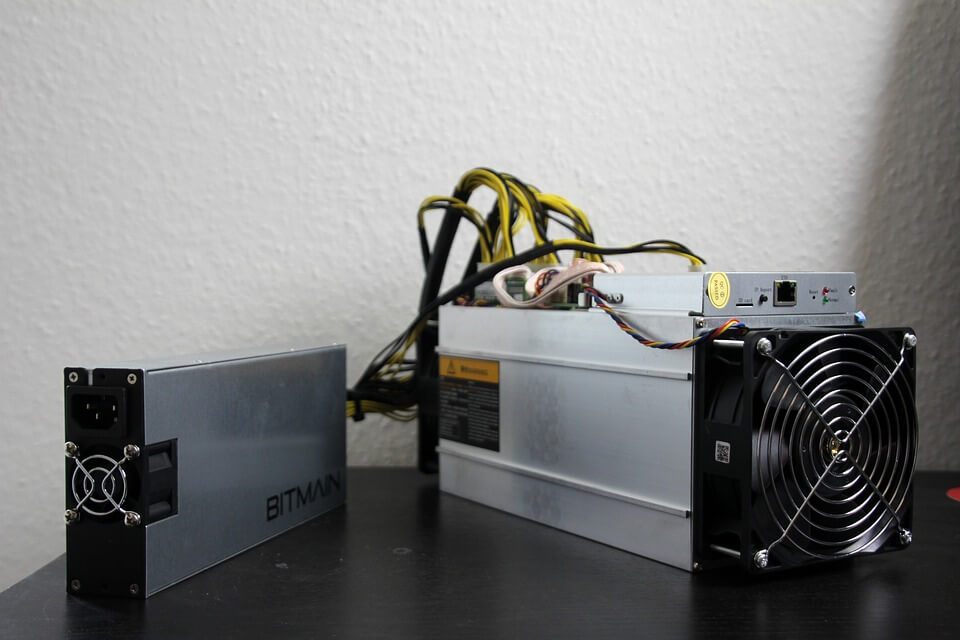
Quebec Could Become a Hub for Bitcoin Mines Very Soon

Mining metals and minerals like nickel, gold, copper and zinc helped shape Canada into the nation it is today—and a new kind of mining may help the country enter a technology-focused future.
Quebec has become a potential destination for the establishment and relocation of Bitcoin and other cryptocurrency mining centres, particularly from Chinese companies looking to leave the country due to regulatory pressure. AntPool is the largest Bitcoin mine in the world right now, accounting for 56 per cent of global bitcoin miners, and currently resides in China.
However, the country has been notoriously fickle with cryptocurrency, first banning ICOs, then banning trading altogether, then reenabling trading with strict regulations. Mine operators in China have been worrying about how the continued crackdown may affect their ability to operate and have explored new options, including Quebec. Countries like Iceland and Sweden are mine destinations as well, but Quebec is doing its part to woo potential suitors to the province.
“We can confirm that we have seen a rising number of inquiries by Asian companies about opening centers here since the end of the summer,” said Jonathan Côté, a spokesperson with Hydro-Quebec. “Some of them are quite large as the projects can range from 5 mW to over 100 mW in energy consumption.”
For a comparison to those energy numbers, the Bell Centre—home to the NHL’s Montreal Canadiens—pulls around 5 mW of energy. The more processing power a mine controls, the more cryptocurrency it can access. A computer in a mine may perform millions of calculations per day, using enormous amounts of energy to produce just fractions of a Bitcoin. Put hundreds of them together though, and suddenly it becomes a lucrative business.

Cryptocurrency mining centres coming to Canada would mean a few different things. Firstly, it would be a boon in terms of investment in electronics, energy, and at least a few new jobs. Quartz profiled one of the largest mining centres in China in late summer and reported that 50 employees live on-site, constantly watching more than 25,000 computers running all day and consuming over $39,000 USD worth of electricity per day.
But how those numbers—particularly energy-related figures—translate to costs in Quebec is hard to judge. According to recent statistics, China has some of the cheapest energy costs per kilowatt-hour in the world, but Canada is right behind them. The final amounts are difficult to estimate though, as many variables factor in: the growing availability of renewable sources, location specific pricing (Quebec is far cheaper than other provinces), the selling of energy to fund infrastructure, and more.
The average price of residential power in Quebec is $5.82 CAD per kilowatt-hour, but a new industrial revitalization rate in the province will allow huge power consumers to only pay $3.30 per kilowatt-hour. That plan comes into effect on April 1, 2018, so there’s a chance foreign cryptocurrency mines make a move after that.
“Quebec is an attractive destination for Bitcoin mining operations as we represent an abundant, affordable and renewable electricity source,” said Côté. “We can help mining centers save on their operating costs while making them greener.”
Quebec is also very cold for a large part of the year, which works wonders for an operation that runs electronics all day every day. New centres could save on cooling costs and reduce the number of fans and coolant needed.
“Blockchain is one of a number of frontier technologies that are a rising trend,” says Boris Mann, a cryptocurrency expert and founder of Frontier Foundry. “I believe that Canada needs to continue to invest in being a knowledge economy, so both building companies in Canada and attracting companies from elsewhere to set up shop here is a benefit to the country.”
In addition to the tens of millions in energy costs that Quebec would collect each year from mining centres, one important aspect of cryptocurrency mines coming to the country would simply be a better understanding of how the technology works. Regulatory bodies may be less scared to trust blockchain if they could tour local large-scale operations and see how the money is funnelling back into the country’s infrastructure.
Just recently, the Canada Pension Plan Investment Board discussed the option of investing in cryptocurrency. They said it was not worth investing yet, but in the future it could be viable. This future will come eventually for traditional investors and financial consultants, but cryptocurrency miners may just bring it to Canada’s doorstep sooner rather than later.











